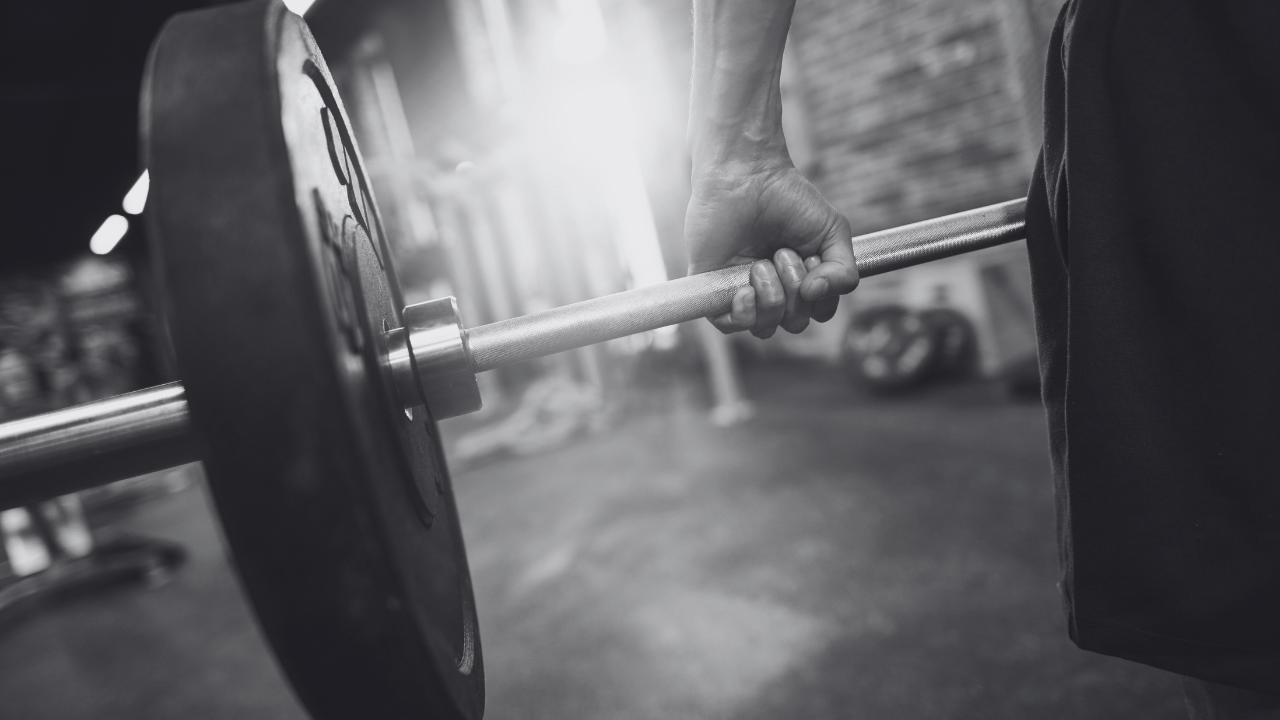"I'm in control, not my IBS"
Richie P

What They Don't Tell You About The Carnivore Diet
“Your diet is a bank account. Good food choices are good investments.” - Bethenny Frankel
Looking at his alarm clock it was 05:34 AM. I need to get up. But I'm sooo tired. Urggghhh... If I don't get up and use the toilet, I'll end up being late for work again. And then I'll have the boss on me. Again.
Every morning Sam's alarm was set for 05:00 AM. Not because he was following "The 5 AM Club" or anything. It was just so it'd give him enough time to sit on the toilet for a couple of hours. Because he wanted to make sure he was empty. So he could feel more confident about getting to work without any 'accidents' or unplanned toilet stops on his daily commute.
But even then, that didn't always work.
The mornings were the worst for his diarrhoea and stomach cramps.
He'd tried shedloads of stuff.
Dairy free.
Yeast free.
No caffeine - that was a hard one - he felt he needed that caffeine kick so he could focus at work. Especially with his IBS brain fog.
A bland diet.
Low fibre.
High fibre.
Low fat.
Imodium (diarrhoea medication - but note, Imodium is not suitable for everyone to take).
Fermented foods.
Probiotics.
Prebiotics (basically food that feeds specific beneficial bacteria that live in the gut, and not to be confused with prObiotics).
Digestive enzyme supplements (enzymes that help digest carbs, fats and proteins).
Avoided certain foods like bread, onions and garlic.
He took extra vitamins and mineral supplements (which I wouldn't recommend unless you've spoken to your doctor or Dietitian first).
He took herbal remedies. By the way, you'd benefit by reading this before taking natural remedies.
He had a colon cleanse (that ended up being a total nightmare, getting whisked off to A&E and spending a couple of days in hospital).
Food intolerance tests, including IgG food intolerance testing.
And even a poo test.
Pheww-we, Sam sure has tried a lot! Maybe you have too?
But he STILL had horrible, random flare-ups... And was spending tons of time in the toilet every morning (when, instead, he could've been enjoying a more leisurely start to the day, and spending time with his kids before heading off to work - but, nope, his diarrhoea put a stop to that).
So he continued his search.
And stumbled across the Carnivore diet.
He read that the Carnivore diet...
(Before emptying your kitchen of any fruit and veggies, read the Pros & Cons 👇 first):
Cures IBS (!)
Improves gut health
Reduces inflammation
Reduces risk of chronic conditions such as heart disease
Reverses diabetes
Increases testosterone and libido (whoop whoop 🙌 , which he obviously liked the sound of 😉)
Helps with weight loss
Removes toxin build-up
Improves autoimmune diseases
Just in case you've no idea, an autoimmune disease is where the body's immune system attacks itself (1,2).
There are more than EIGHTY different types of autoimmune disease (2). Wow.
These include conditions such as Coeliac disease, Type 1 diabetes, rheumatoid arthritis, Multiple Sclerosis, Addison’s disease, and Lupus. Each requires its own management strategy.
He also read that the Carnivore diet:
Boosts energy
Improves mood
Improves focus and concentration
Eliminates insomnia
This sounds great and all, but is there any truth behind these claims?
Like most people, Sam didn't think about that side of things, he just cracked on with it. But was that the best thing to do though 🤔?
Before we look into this...
What can you eat if you follow the Carnivore diet?
"Bill... Bill... What d'you want for dinner? Chicken or beef?" She said shouting from the kitchen (sounding a bit like a flight attendant doing the meal rounds). "We had those yesterday", said Bill, bored of the same old same old.
"Ooohh, what we got to eat?" "Beef steak... again".
So basically NO plant-based foods!
Every day you can graze on things like:
Beef, pork, chicken, turkey, lamb, mutton, goat, venison, veal, bison, game, seafood, eggs and small amounts of dairy. That's it.
No great variety.
No colourful plates of food.
Just white/cream, pink/red, and brown. ... or maybe some black if it's burnt 🤪

Which looks most interesting and appetising?
To start off with, it would probably be a bit of a novelty and seem ok eating meat all day every day. But it'd soon get boring? Bored of the same kind of tastes, day in, day out.
Plus, since we also “eat with our eyes”... seeing a lonely piece of meat, poultry or fish on a plate... EVERY. Day ... 😬
It's like being on Exercise or Tour in the Army (- you know, "manoeuvres"), and some numpty (either accidentally or as a joke, because that's what soldiers do), ordered the same ration pack menu for the whole 8-weeks (or longer)!
Sausages and beans. Again. Meatballs and pasta. Again.
No actually, one ration pack menu has wayyy more variety (and is far more nutritious) than the Carnivore diet.
What Are The Pros and Cons Of The Carnivore Diet?
I'm going to shift gears here slightly, and get to the meat (!) of it with a look at what the science says...
PROS:
IF you believe the claims, it's got plenty of health benefits (as mentioned above)...
But I can't find any robust studies proving any of these claims.
Sure, fans of the diet, including an MD who wrote a book on it, mentions some studies but they're either old, poor quality study design so you can't rely on the results, or it's been performed on rats or mice - so obviously translating that to humans isn't ideal because our bodies work differently, and rodent studies have their limitations.
Also, one of the papers the MD refers to is particularly questionable.
This is because it was an online survey. People answered questions about their health, any symptoms, why they chose the diet, and their eating habits while following it (3).
What's the problem with this you're thinking? And it involved 2029 people, so that sounds great, right?
Well, the people that participated could've lied, withheld the truth, or even forgotten specific details ...
For instance, some clients I've had can't remember what they ate and drank that morning, let alone yesterday. So imagine trying to remember detailed health and lifestyle info over an extended period. It's tough.
The researchers didn't check each person's medical records, dietary intake, lifestyle factors or test them for nutritional deficiencies. The survey was all self-reported. So the results need to be taken with a pinch (or handful) of salt.
This study has significant risk of 'self-reporting bias' -
This is when someone gives wrong or not enough information. For example, they might forget details, or avoid talking about certain things (4).
This might happen because they're trying to remember things from a while ago. Maybe they didn't fully understand the questions, especially as it was online with no one to ask for help. Or perhaps they wanted to tell the researcher what they think they want to hear and appear more positive.
As a result, using self-reported data from online surveys seriously weakens the study's findings.
Also, there's the concern that other factors may have influenced the self-reported results. Lifestyle factors such as exercise, stress, and sleep could have all played a role.
Therefore, due to the lack of robust and reliable evidence, the claims about the diet can't be trusted.
Back to the Pros...
By the fact that you’re eating nothing but animal-based products, your IBS symptoms may improve... But they may then get worse because of the negative impact on gut bacteria plus the lack of fibre - see below where I cover this.
You no longer have to take ages to decide what to eat! ... Meat or fish?
It's low in sugar and added sugar.
You might lose weight on this diet. Which could be a good or bad thing, depending on your current body weight and composition goals.
❗️But there's a healthy way and a bad way to lose weight.
When I was a teenager I wanted to be thin (not that I was ever overweight). So I didn't eat. And funnily enough, I lost weight. Thankfully the Army saved me from this - making me eat and watching me at every mealtime. And being competitive and realising that if I ate well, I had more energy, and the more energy I had, the greater the chance I had at steaming past the others! 🏃🏻♀️
👎 CONS:
It’s so restrictive that it’s UNSUSTAINABLE (and boring).

It's more than a Keto diet - it's basically a NO carb diet.
Meat costs more than vegetables, fruits, beans and pulses.
Certain cuts of meat need to be cooked a certain way (to be tender and tasty).
For example, beef brisket is a cheaper bit of meat than fillet, so you might decide to go for that to keep your grocery bill down.
But, if you try to cook brisket like a fillet steak you'll have some tough meat to be chewing on, and on, and on. Brisket lends itself to low and slow cooking.
Nutritional deficiencies.
Because you're not allowed any fruits, vegetables, wholegrains or legumes (like peas, beans and pulses), you're missing out on essential fibre, vitamins, minerals and antioxidants. This can put you at risk of numerous nutritional deficiencies. And the health consequences of those.
Health risks.
The diet provides NO fibre, which puts you at risk of constipation, heart disease, stroke, Type 2 Diabetes and bowel cancer (5).
Fibre is food for the trillions of microorganisms living in our gut, collectively known as the gut microbiota. This community of tiny helpers plays various important roles in our body (6), for example:
Produces B vitamins and vitamin K,
Influences gut movement and function,
Breaks down medications,
Produces short-chain fatty acids (SCFAs) which are fuel for the cells lining our gut.
So we want to look after all those beneficial bugs that naturally live in our gut, so they can look after us!
Impact on gut microbiota.
Among several factors, what we eat affects the type and amounts of microorganisms that live in our gut.
If you start eating just meat, your gut microbiome will change from when you were eating a wide variety of different foods (7).
Gut bacteria love to feast on fibre, but if there's not much of that around (like when following the Carnivore diet) they'll munch on protein (8).
This lack of fibre can hurt your gut health by reducing the quantity and variety of bacteria present (5). This in turn can have various negative effects, such as causing gut symptoms, impacting your immunity, mood, and sleep, and hindering the proper functioning of the gut microbiota.
So by following this diet you're having an excessively high amount of protein because you're having a high meat intake. But this isn't giving your gut bacteria what they want - fibre, so they're left with protein.
Many guys, and maybe this includes you, believe 'more protein means more gains' 💪, but this isn't the case (9,10) and deserves an entire article on its own.
Having a lot of meat, and you can't get any higher than the Carnivore diet, has been shown to decrease certain types of health-promoting bacteria such as Faecalibacterium ("Fee-caly-bacteeri-um") (11).
Also, it leads to a reduction in beneficial SCFA, such as butyrate (12,13) (which are produced from the breakdown of fibre (14)).
What's the consequences of excess protein?
Smelly farts, but more importantly, gut microbiota produce other compounds that have been associated with cardiovascular disease, colon cancer and Inflammatory Bowel Disease (IBD - e.g., Crohn's disease and Ulcerative Colitis) (15,16,17).
High in saturated fats.
The Carnivore diet can easily be high in red meat (depending on your food choices). And red and processed meats are high in saturated fats.
Saturated fats can raise your blood cholesterol levels of “LDL cholesterol”, which is known as “bad” cholesterol ...compared to “HDL cholesterol” which is known as “good” cholesterol (18,19).
Raised blood LDL cholesterol levels increases your risk of heart disease and stroke 🫀🧠
How much saturated fat is recommended?
The UK government recommends we have no more than 10% of total energy intake from saturated fats - about 30g max. a day for men, and replacing saturated fats with unsaturated fats (- found in things like nuts, seeds, olives, avocados and oily fish) (20).
You can check food labels to see if a product is high, medium or low in fat and saturated fats:
Per 100g of the food:
Fat:
High: 17.5g or more
Medium: 3 - 17.5g
Low: 3g or less
Saturated Fat:
High: 5g or more
Medium: 1.5 - 5g
Low: 1.5g or less
The Carnivore diet can be high in red meat
Eating a lot of red meat and processed meats has been shown to increase your risk of bowel cancer, and there's evidence suggesting an increased risk of stomach and pancreatic cancers (21).
In the UK it's recommended that we have no more than 70g of red or processed meat a day (22).
But what exactly is 'red meat'? It might sound like a silly question, but people often get confused and ask me about it. Many are surprised to learn that pork is considered red meat.
Red meat includes:
Beef,
Lamb and mutton,
Pork,
Veal,
Venison,
Goat.
Processed meats include:
Any meat that’s been cured, salted, smoked, or otherwise preserved in some way, such as:
Bacon,
Sausages,
Hot dogs,
Ham,
Luncheon meat,
Salami, and pepperoni,
Pate.
Processed meats are usually high in salt, so this is another potential issue depending on your food choices. Why? Because having too much salt is linked to high blood pressure, and chronic high blood pressure can increase the risk of heart attack, stroke, vascular dementia and kidney disease (23).
"A salt intake of less than 5 grams (approximately 2g sodium) per person per day is recommended by WHO (World Health Organisation) for the prevention of cardiovascular diseases, the leading cause of death globally" (24).
The negative impact to the environment from producing all that meat (25,26).
So do you now think Sam was wise to follow the Carnivore diet? Would you even follow it?
Based on surveys and research (27-30), and my own experience of people with IBS, many would take drastic action in an attempt to rid themselves of IBS symptoms because of its impact, so I can understand people willing to take the risk of trying a diet like this.
But it's crucial to your health and wellbeing to make an informed decision before trying the Carnivore diet. Which is what I've tried to help you do here.
Key Takeaways:
The Carnivore diet is restrictive. It only allows meat, fish, eggs and a small amount of dairy.
There are many health claims but NO quality evidence to support these.
The diet puts you at risk of nutritional deficiencies and the health consequences of those.
It totally lacks fibre which puts you at risk of constipation, heart disease, stroke, Type 2 Diabetes and bowel cancer.
It can be high in red and processed meat which increases risk of certain cancers.
Red and processed meats are high in saturated fats, which can raise blood cholesterol levels and increase risk of heart disease and stroke.
Processed meats are high in salt, which is linked to high blood pressure, which is linked to an increased risk of cardiovascular diseases such as heart attack and stroke.
(... have you noticed a theme here with cardiovascular disease and cancer? ... And, you may actually be at higher risk of developing the very conditions they claim to prevent or reverse!)
It negatively impacts the gut microbiota, which can affect things like gut health, bowel movements, immunity, mood, sleep, weight management, and disease risk and progression (31,32).
Rather than jeopardising your food enjoyment and compromising your health and wellbeing with this fad diet, what can you do to improve your IBS?
A great place to start is here.
References:
1. BSI. (2023). Autoimmunity: Introduction. British Society For Immunology (BSI). Available [online] from: https://www.immunology.org/public-information/bitesized-immunology/immune-dysfunction/autoimmunity-introduction
2. Diabetes.co.uk. (2023). What is an Autoimmune Disease? Available [online] from: https://www.diabetes.co.uk/autoimmune-diseases.html
3. Lennerz, B. S., Mey, J. T., Henn, O. H., & Ludwig, D. S. (2021). Behavioral characteristics and self-reported health status among 2029 adults consuming a “carnivore diet”. Current Developments in Nutrition, 5(12), nzab133.
4. Althubaiti, A. (2016). Information bias in health research: definition, pitfalls, and adjustment methods. Journal of Multidisciplinary Healthcare, 211-217.
5. Cronin, P., Joyce, S. A., O’Toole, P. W., & O’Connor, E. M. (2021). Dietary fibre modulates the gut microbiota. Nutrients, 13(5), 1655.
6. Valdes, A. M., Walter, J., Segal, E., & Spector, T. D. (2018). Role of the gut microbiota in nutrition and health. BMJ, 361.
7. Bartlett, A., & Kleiner, M. (2022). Dietary protein and the intestinal microbiota: An understudied relationship. Iscience.
8. Oliphant, K., & Allen-Vercoe, E. (2019). Macronutrient metabolism by the human gut microbiome: major fermentation by-products and their impact on host health. Microbiome, 7(1), 1-15.
9. Kerksick, C. M., Wilborn, C. D., Roberts, M. D., Smith-Ryan, A., Kleiner, S. M., Jäger, R., ... & Kreider, R. B. (2018). ISSN exercise & sports nutrition review update: Research & recommendations. Journal of the International Society of Sports Nutrition, 15(1), 38.
10. Morgan, P., Killer, S., McNaughton, L., Dirks, M., Wizard, O., Wall, B. & Breen, L. (2022). The BASES Expert Statement on protein recommendations for athletes: Amount, type and timing. BASES. Available [online] from: https://www.bases.org.uk/imgs/bases_tses_spring_2022_online_expert_statement683.pdf
11. Wang, Y., Uffelman, C. N., Bergia, R. E., Clark, C. M., Reed, J. B., Cross, T. W. L., ... & Campbell, W. W. (2023). Meat consumption and gut microbiota: A scoping review of literature and systematic review of randomized controlled trials in adults. Advances in Nutrition, 14(2), 215-237.
12. Lopez-Siles, M., Duncan, S. H., Garcia-Gil, L. J., & Martinez-Medina, M. (2017). Faecalibacterium prausnitzii: from microbiology to diagnostics and prognostics. The ISME Journal, 11(4), 841-852.
13. Parsaei, M., Sarafraz, N., Moaddab, S. Y., & Leylabadlo, H. E. (2021). The importance of Faecalibacterium prausnitzii in human health and diseases. New Microbes and New Infections, 43.
14. Fusco, W., Lorenzo, M. B., Cintoni, M., Porcari, S., Rinninella, E., Kaitsas, F., ... & Ianiro, G. (2023). Short-chain fatty-acid-producing bacteria: Key components of the human gut microbiota. Nutrients, 15(9), 2211.
15. Duncan, S. H., Iyer, A., & Russell, W. R. (2021). Impact of protein on the composition and metabolism of the human gut microbiota and health. Proceedings of the Nutrition Society, 80(2), 173-185.
16. Ma, H., & Qi, X. (2023). Red Meat Consumption and Cancer Risk: A Systematic Analysis of Global Data. Foods, 12(22), 4164.
17. Singh, R. K., Chang, H. W., Yan, D. I., Lee, K. M., Ucmak, D., Wong, K., ... & Liao, W. (2017). Influence of diet on the gut microbiome and implications for human health. Journal of Translational Medicine, 15(1), 1-17.
18. SACN. (2019). Saturated fats and health: SACN report. The Scientific Advisory Committee on Nutrition (SACN) report on saturated fats and health.
19. Heart UK. (2023). What causes high cholesterol? Available [online] from: https://www.heartuk.org.uk/cholesterol/causes
20. BDA. (2021). Fat Facts. Available [online] from: https://www.bda.uk.com/resource/fat.html
21. Cancer Research UK. (2023). Does eating processed and red meat cause cancer? Available [online] from: https://www.cancerresearchuk.org/about-cancer/causes-of-cancer/diet-and-cancer/does-eating-processed-and-red-meat-cause-cancer
22. NHS. (2021). Red meat and the risk of bowel cancer. Available [online] from: https://www.nhs.uk/live-well/eat-well/food-guidelines-and-food-labels/red-meat-and-the-risk-of-bowel-cancer/
23. BHF. (2023). High blood pressure. Available [online] from: https://www.bhf.org.uk/informationsupport/risk-factors/high-blood-pressure#symptoms
24. WHO. (2024). Salt intake. Available [online] from: https://www.who.int/data/gho/indicator-metadata-registry/imr-details/3082#:~:text=A%20salt%20intake%20of%20less,much%20more%20salt%20than%20recommended.
25. González, N., Marquès, M., Nadal, M., & Domingo, J. L. (2020). Meat consumption: Which are the current global risks? A review of recent (2010–2020) evidences. Food Research International, 137, 109341.
26. Ritchie, H., Rosado, P., & Roser, M. (2022). Environmental impacts of food production. Our world in data.
27. Ballou, S., Bedell, A., & Keefer, L. (2015). Psychosocial impact of irritable bowel syndrome: A brief review. World Journal of Gastrointestinal Pathophysiology, 6(4), 120.
28. Black, C. J., & Ford, A. C. (2020). Global burden of irritable bowel syndrome: trends, predictions and risk factors. Nature reviews Gastroenterology & Hepatology, 17(8), 473-486.
29. GI Society. (2018). Global impact report. Available [online] from: https://badgut.org/ibs-global-impact-report-2018/
30. Quigley, E. M. (2013). Global impact of Irritable Bowel Syndrome. Irritable Bowel Syndrome: Diagnosis and Clinical Management, 37-49.
31. Hou, K., Wu, Z. X., Chen, X. Y., Wang, J. Q., Zhang, D., Xiao, C., ... & Chen, Z. S. (2022). Microbiota in health and diseases. Signal transduction and Targeted Therapy, 7(1), 135.
32. Wang, Y., Uffelman, C., Bergia, R., Clark, C., Reed, J., Cross, T. W., ... & Campbell, W. (2022). Meat Consumption and Gut Microbiota: A scoping review of literature and systematic review of randomized controlled trials in adults without diagnosed disease. Current Developments in Nutrition, 6(Supplement_1), 1037-1037.
33. Baker, S. (2019). The carnivore diet. Victory Belt Publishing.
34. Gu, X., Drouin-Chartier, J. P., Sacks, F. M., Hu, F. B., Rosner, B., & Willett, W. C. (2023). Red meat intake and risk of type 2 diabetes in a prospective cohort study of United States females and males. The American Journal of Clinical Nutrition.
35. Shi, W., Huang, X., Schooling, C. M., & Zhao, J. V. (2023). Red meat consumption, cardiovascular diseases, and diabetes: A systematic review and meta-analysis. European Heart Journal, ehad336.
36. Jang, L. G., Choi, G., Kim, S. W., Kim, B. Y., Lee, S., & Park, H. (2019). The combination of sport and sport-specific diet is associated with characteristics of gut microbiota: An observational study. Journal of the International Society of Sports Nutrition, 16(1), 21.


I enjoy going out for meals with family and having nights out with mates - things I've not been able to do for a long time.
Mason P
Project Manager


I don't have to worry about mates or colleagues taking the p*ss out of me anymore because I'm on top of my IBS.
Trevor K
Sales Executive


I've got so much more energy and focus now, without constantly being distracted by my stomach issues or having to dash to the loo.
Marcus M
Writer









